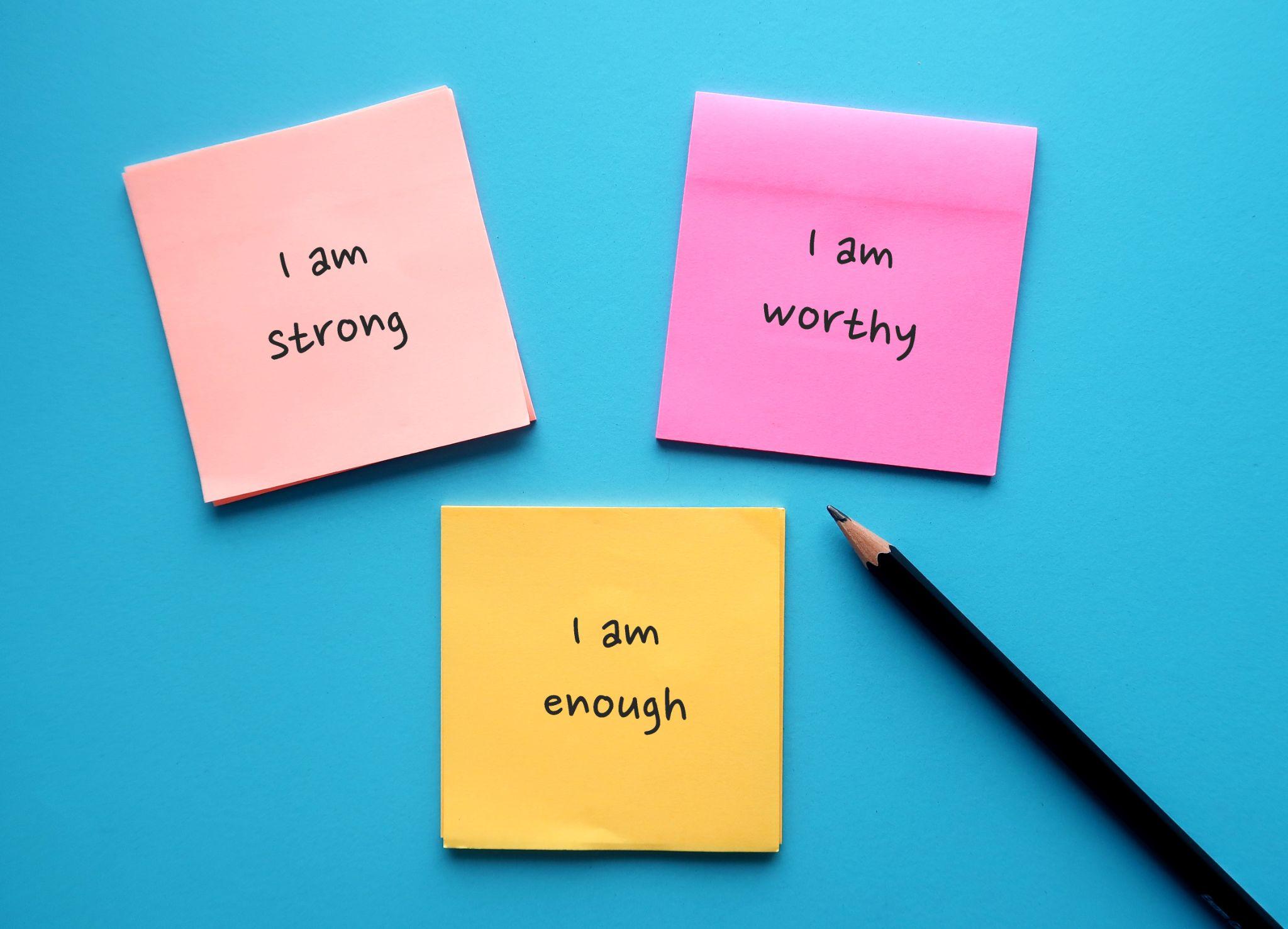Recovery from addiction is a path where the struggle can sometimes feel overwhelming. During these moments, finding strength within ourselves is crucial for overcoming obstacles. One powerful tool in this journey is the use of positive affirmations.
These are positive phrases or statements used to challenge negative or unhelpful thoughts and beliefs. Using positive affirmations during addiction recovery can have many benefits in the long term by helping one stay in the present moment and enhancing overall mental health.
Whether you’re navigating this path yourself or supporting a loved one, these affirmations can create hope in darker times.
What Are Positive Affirmations?
Positive affirmations are more than just positive thoughts or statements. They are a practice of self-empowerment and reprogramming your mind to believe in the possibility of positive outcomes.
By regularly practicing these affirmations, you can start to shift your mindset and improve your coping strategies during recovery. They help in building self-esteem, reducing stress, and fostering a healing environment for both the mind and body.
The role of positive affirmations in addiction recovery is profound, serving as a crucial element towards healing and self-renewal. At the heart of their power is the ability to help break the cycle of negative self-talk, a common struggle for those battling addiction.
This cycle often perpetuates feelings of guilt, shame, and a diminished sense of self-worth, which can hinder progress in recovery. Positive affirmations act as a counterforce to these destructive patterns, redirecting thoughts towards self-compassion, acceptance, and the recognition of one’s inherent value.
Try These Positive Affirmations in Addiction Recovery
To aid in navigating this transformative process, below are examples of positive affirmations designed specifically for those in recovery. These affirmations can help foster resilience, self-compassion, and a positive mindset, guiding you toward healing and empowerment.
For Building Self-Esteem
- “I am worthy of love, recovery, and healing.”
- “Each day, I grow stronger and more resilient.”
- “I believe in my ability to overcome my challenges and achieve my goals.”
For Reducing Stress and Anxiety
- “I am brave enough to face my problems with a calm heart and mind.”
- “I release my worries and embrace peace.”
- “Today, I choose to focus on what I can control.”
For Fostering Positivity and Hope
- “I am surrounded by love and support.”
- “I am capable of creating a life free from addiction.”
- “Every day brings new opportunities for growth and healing.”
For Encouraging Perseverance and Determination
- “I will not be defined by my past but by my progress.”
- “I have the strength to continue my journey, even when it’s hard.”
- “My recovery is worth every step.”
For Cultivating Self-Compassion and Forgiveness
- “I forgive myself for my past and embrace my future with an open heart.”
- “I treat myself with kindness and understanding.”
- “My mistakes are not failures but opportunities to learn and grow.”
How to Use Positive Affirmations in Addiction Recovery
Incorporating recovery affirmations into your journey from addiction involves specific, intentional practices. You can make these affirmations a powerful part of your healing by using these steps:
1. Identify Your Triggers
Begin by recognizing situations, emotions, or environments that trigger negative thoughts or cravings. Understanding your triggers allows you to craft affirmations that directly counteract these challenges. For instance, if loneliness is a trigger, your affirmation could be “I am surrounded by support and love, even in solitude.”
2. Create Personalized Affirmations
Develop affirmations that speak directly to your struggles and aspirations in recovery. Use first-person statements and present tense, like “I am becoming stronger every day,” to reinforce personal involvement and immediate relevance. Tailor these statements to affirm your ability to face triggers, overcome cravings, and maintain your path to recovery.
3. Incorporate Affirmations Into Your Daily Routine
Make your affirmations a regular part of your day. Set aside time each morning to repeat them, perhaps as part of your morning ritual or meditation practice. You can also use them reactively when you encounter a trigger or feel overwhelmed. Write them on sticky notes around your living space or set reminders on your phone to repeat them throughout the day.
4. Use Affirmations During Therapy Sessions
Discuss your affirmations with your therapist or support group. Integrating these affirmations into your therapy sessions can enhance their effectiveness, providing you with professional insights and encouragement. Your support network can help you refine these affirmations to ensure they are impactful and supportive of your recovery journey.

5. Combine Affirmations With Visualization
When you repeat your affirmations, visualize yourself successfully facing a trigger without succumbing to it. Imagine overcoming a challenging moment, feeling strong, and being at peace. This visualization technique enhances the affirmation by embedding the positive outcome in your subconscious.
6. Reflect and Adjust Your Affirmations
Recovery is an evolving process, and as you grow, your needs and challenges may shift. Regularly reflect on the effectiveness of your affirmations. Adjust them as needed to align with your current phase of recovery, ensuring they remain relevant and empowering.
7. Practice Self-Compassion
Remember, the path to recovery is often non-linear. There may be days when your affirmations seem less believable to you. During these times, practice self-compassion.
Remind yourself that recovery takes time and that every step forward, no matter how small, is significant. An affirmation like “I treat myself with kindness and patience on my journey to recovery” can be particularly powerful in such moments.
8. Celebrate Your Progress
Use affirmations to celebrate your achievements and progress in recovery. Acknowledge your strength in facing challenges and the strides you’ve made. Affirmations like “I am proud of my progress and the person I am becoming” can reinforce positive self-perception and motivate you to continue your journey.
Incorporate Positive Affirmations Into Recovery With Lumina Recovery
Addiction recovery is a deeply personal experience, filled with challenges and triumphs. Positive affirmations serve as gentle reminders of our strength, resilience, and the possibility of a brighter future.
By integrating these affirmations into your daily routine, you can foster an environment of positivity, hope, and healing. Lumina Recovery offers cognitive behavioral therapy (CBT) and dual diagnosis care for anxiety, where positive affirmations can be beneficial.
Remember, you are not alone on this journey. There is strength within you, and with each positive affirmation, you are one step closer to a life of freedom and fulfillment.
Don’t hesitate to contact our team today to learn more about our holistic approach to recovery.


